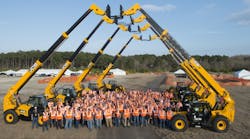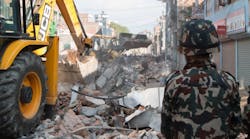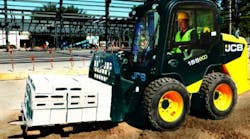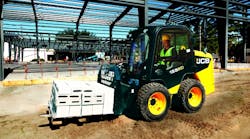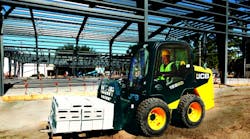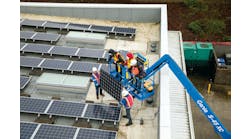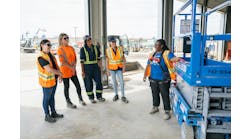JCB posted earnings on an EBITDA basis of $474 million in 2014, compared to $489 million in 2013 as improvements in Western economies were eclipsed by sharp falls in developing construction equipment markets. Sales revenue was $3.9 billion compared to $4.2 billion in 2013, a 7.7-percent drop. Machine sales totaled 64,028 compared to 66,227 in 2013.
“For different reasons, each of the ‘BRIC’ markets of Brazil, Russia, India and China were sharply down in 2014,” said Lord Bamford, JCB chairman. “However, the broad spread of our business enabled us to benefit from better conditions in North America, Western Europe and particularly the U.K.”
The construction equipment market in Brazil declined 17 percent in 2014, Russia plunged 27 percent, India almost 15 percent and China by 17 percent. Markets in the U.K., and North America, on the other hand, grew 30 percent and 13 percent respectively. JCB sales in North America grew 23 percent, outpacing the market and making it a record year for JCB in North America, now the company’s biggest market behind India and the U.K.
“Global market uncertainty has continued into 2015, though our home market of the U.K. remains a rare bright spot,” said Lord Bamford. “The need for infrastructure in much of the developing world remains acute and will eventually drive a resumption of growth. Our resilient performance in 2014 demonstrates we are well placed to capitalize on improving trends as they emerge.”
Since 2010, JCB has created 2,000 new jobs at its 11 U.K. plants, boosting employment levels to 6,000. Globally, the company now employs 12,500 people. JCB is currently investing in U.K. manufacturing by increasing production capacity at its world headquarters in Rocester, Staffordshire, U.K. The company also completed a 700,000-square-foot factory development in Jaipur, India in 2014 which cost $96 million, and construction of a $39 million headquarter for JCB Germany is also underway.
“We continue to invest heavily in all areas of our business despite the difficult markets, and this is the best demonstration of our confidence in the future,” added Lord Bamford.
